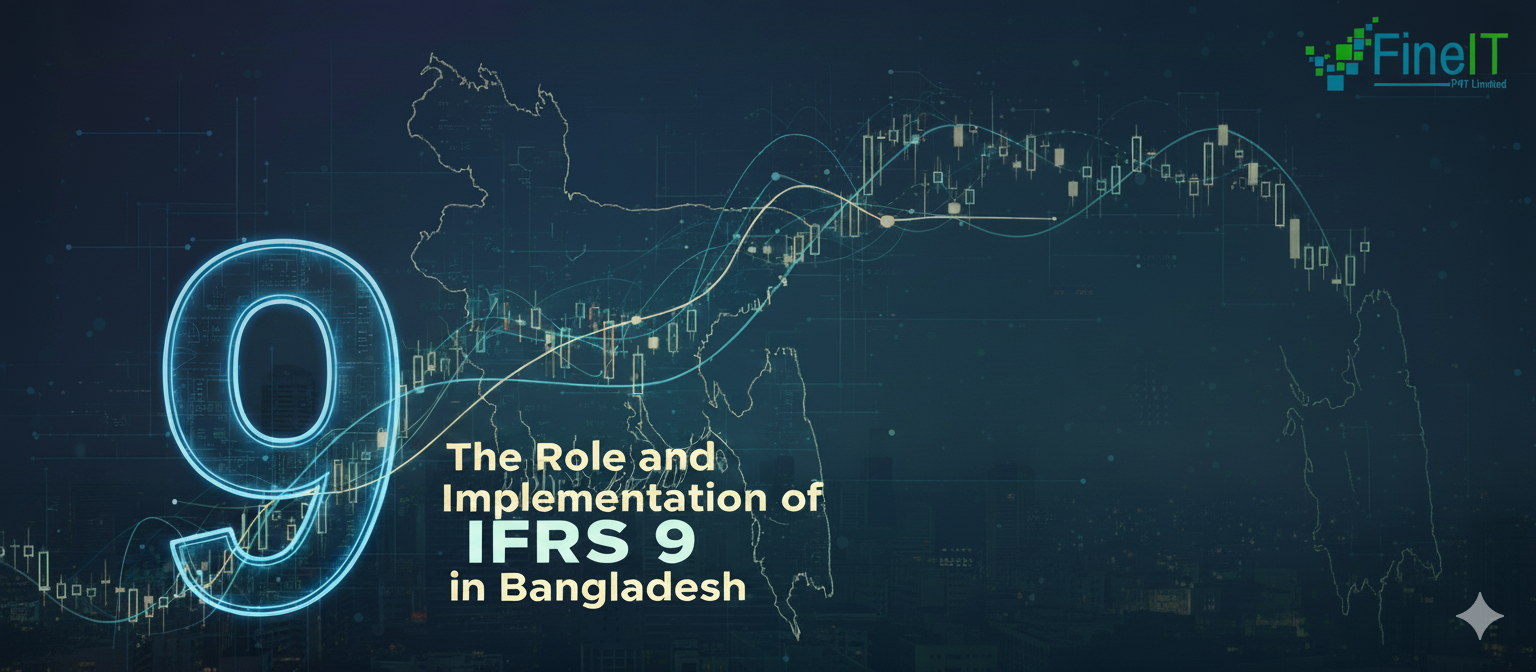The International Financial Reporting Standard 9 (IFRS 9) is one of the most significant reforms in global financial reporting. Introduced by the International Accounting Standards Board (IASB), IFRS 9 provides guidelines for the classification, measurement, impairment, and hedge accounting of financial instruments. Its primary goal is to enhance transparency, accountability, and risk management in financial institutions.
In Bangladesh, IFRS 9 has been adopted under the name Bangladesh Financial Reporting Standard 9 (BFRS 9) by the Institute of Chartered Accountants of Bangladesh (ICAB). The implementation of BFRS 9 marks an important milestone for the country’s financial sector, especially the banking industry.
Adoption of IFRS 9 in Bangladesh
Bangladesh formally adopted IFRS 9 as BFRS 9, aligning the local accounting standards with international practices. ICAB, the country’s regulatory body for accounting standards, is responsible for adopting and monitoring its implementation.
Recognizing the importance of global standards, the Bangladesh Bank (BB) — the central bank — has made BFRS 9 implementation mandatory for all scheduled banks. This ensures consistency in financial reporting, better risk assessment, and improved investor confidence.
Bangladesh Bank’s Implementation Roadmap
To ensure a smooth transition, Bangladesh Bank has introduced a phased roadmap for implementing the Expected Credit Loss (ECL) model under IFRS 9. Key steps and timelines include:
- By March 2025: Every scheduled bank must establish an IFRS 9 Implementation Team and prepare a time-bound action plan approved by its board.
- By June 2025: Banks must build a borrower-wise and sector-wise data repository covering data from January 2022 onwards to support ECL modeling.
- By September 2026: Pilot implementation must begin in selected branches covering at least 25% of the loan portfolio.
- By December 2027: Full implementation of the IFRS 9-based loan classification and provisioning system is expected across all banks.
This roadmap was formalized through Bangladesh Bank BRPD Circular No. 03 (January 2025).
Why IFRS 9 Matters for Bangladesh
IFRS 9 replaces the incurred loss model with the expected credit loss (ECL) model, meaning financial institutions must recognize potential losses before they occur. This forward-looking approach significantly strengthens the financial system.
Key benefits include:
- Enhanced transparency in financial reporting and loan classification.
- Improved credit risk management through data-driven provisioning.
- Alignment with international standards, helping attract global investors.
- Restoration of public trust in the banking sector, as emphasized by ICAB.
Challenges in Implementation
Despite the clear benefits, implementing IFRS 9 in Bangladesh comes with several challenges:
- Data limitations: Reliable historical and macroeconomic data for modeling expected losses are still developing.
- Technical expertise: Many banks face shortages of skilled professionals capable of developing and validating ECL models.
- Cost implications: System upgrades and external consultancy for IFRS 9 compliance are costly for smaller financial institutions.
- Regulatory alignment: Continuous coordination between ICAB, Bangladesh Bank, and commercial banks is needed to ensure consistency.
A 2024 study highlighted that the success of IFRS 9 in Bangladesh depends largely on institutional capacity building and data infrastructure development.
ICAB’s Position and Support
The Institute of Chartered Accountants of Bangladesh (ICAB) has strongly advocated for the proper implementation of IFRS 9 to restore trust in the banking sector. ICAB continues to organize workshops and issue guidance notes to support both auditors and financial institutions.
According to ICAB, adherence to IFRS 9 will enhance accountability, reduce non-performing loans (NPLs), and align Bangladesh’s financial ecosystem with global reporting practices.
Conclusion
The implementation of IFRS 9 in Bangladesh represents a transformative step toward international best practices in financial reporting and risk management. Through the combined efforts of Bangladesh Bank, ICAB, and the banking community, the country aims to achieve full compliance by 2027.
Although challenges remain—particularly in data quality, capacity building, and technical readiness—the long-term benefits of enhanced transparency, investor confidence, and financial stability make IFRS 9 a crucial reform for Bangladesh’s economic growth.
As Bangladesh moves toward full IFRS 9 (BFRS 9) implementation by 2027, the need for expert guidance, advanced modeling, and reliable data-driven solutions has never been greater. FineIT specializes in end-to-end IFRS 9 implementation — including ECL model development, data infrastructure setup, regulatory alignment, and system integration — tailored specifically for Bangladeshi banks and financial institutions.
Partner with FineIT to ensure smooth, compliant, and efficient IFRS 9 implementation.
